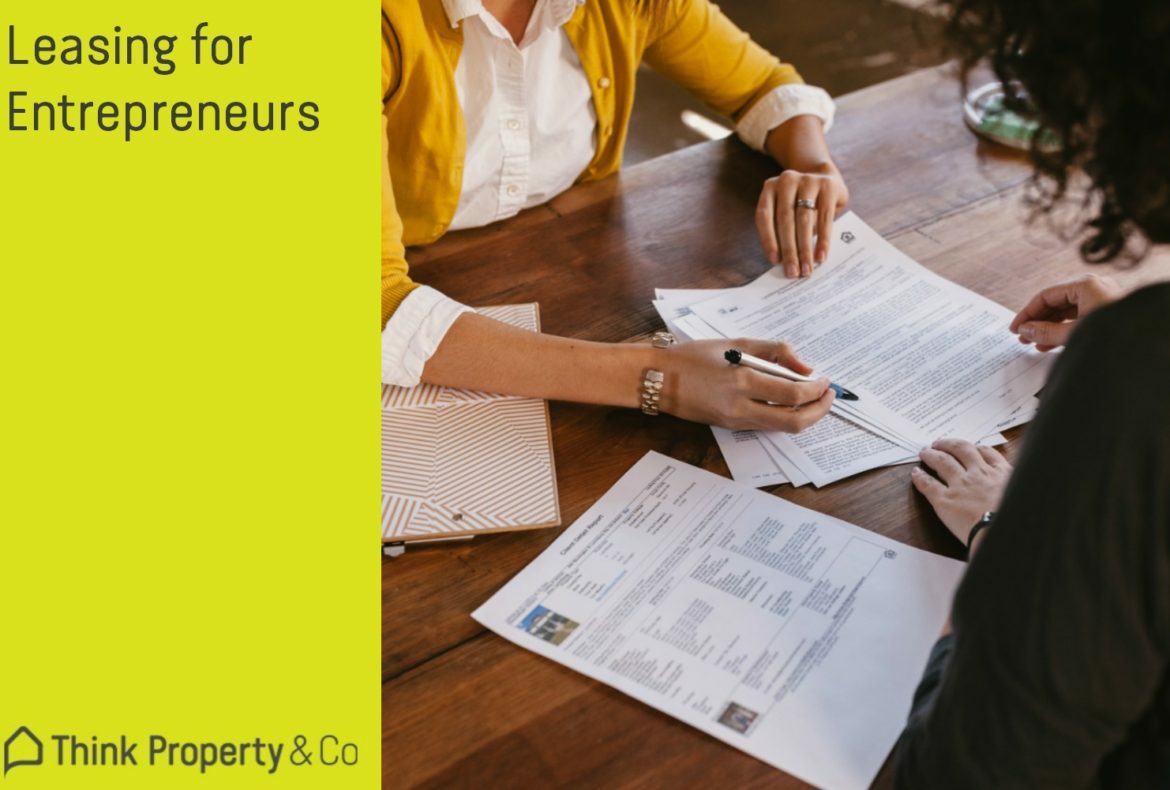Being an entrepreneur in startup is an exciting time: you’ve got an amazing new idea to bring to market, and you’re neck-deep in new logos, product design or digital campaigns. You’ve also got decisions to make about where to base your business from.
Whilst going ‘all in’ and purchasing a commercial property might be on your radar – such an investment doesn’t suit all startups with unproven business models. In this month’s Think Property & Co blog, we’re discussing leasing for entrepreneurs – and why renting when you’re in startup makes great sense financially.
- Allow yourself room to move
Business highs and lows are difficult to forecast, particularly when you’re bringing a new product or offering to market. As a small business in startup, growth is unpredictable. Leasing a residential property while you are in the early throes of your business gives you the flexibility to move – and scale – where growth takes you. It’s an especially good idea for entrepreneurs who cannot predict their company’s growth over the next five years. If your business undergoes rapid growth, you can move from your leased residential property to a shared office space, a comfortable studio, premises with a street frontage, or an industrial warehouse! Residential leasing also offers you a wider variety of properties and locations for your startup at more affordable rates, which is especially helpful if you are bootstrapping your way to success.
- Lower your risk
Purchasing a commercial property when your business is in its infancy is a risky undertaking. Firstly, you’ll need to provide a hefty deposit to secure your property, in addition to showing earning capacity. This is often unfeasible when you’re putting everything into your business. It’s essential to ensure you have the appropriate amount of capital before moving forward with a commercial purchase: the deposit, fit-out expenses, body corporate fees and rates all come into play. And say you do go ahead and purchase whilst in startup: what happens if your business concept underperforms or overperforms for the investment you’ve made? If you are unsure of your business’ potential, leasing is the better option for your startup. The last thing you want is to invest time and money into a property that will only last for a season or two.
- Bring on the tax benefits
Whilst it’s true that you can enjoy certain tax deductions when you purchase a commercial property for your business, don’t forget there are a swathe of great tax benefits available for those who choose to lease. Most notably, a portion of your monthly residential rental payments are typically tax-deductible as a business expense. The same goes for a portion of the utilities you use in the course of your business. It is possible to make such deductions upon your expenses from a residential property that you own – but these deductions can have serious capital gains tax implications. Leasing a residential premises for your business in startup keeps things simple, yet efficient from a tax position. Some enterprising entrepreneurs who are also homeowners elect to lease their principal residence out, moving into a rental property that’s suitable for their startup in both tax status and geography.
Necessarily, consult with an expert accountant versed in commercial and residential property tax before choosing to lease or buy for your business premises. And before leasing a residential property you plan to conduct business from – ensure you inform your property manager. They will need to be aware of your plans for the premises, and understand the kind of business you intend to conduct.

